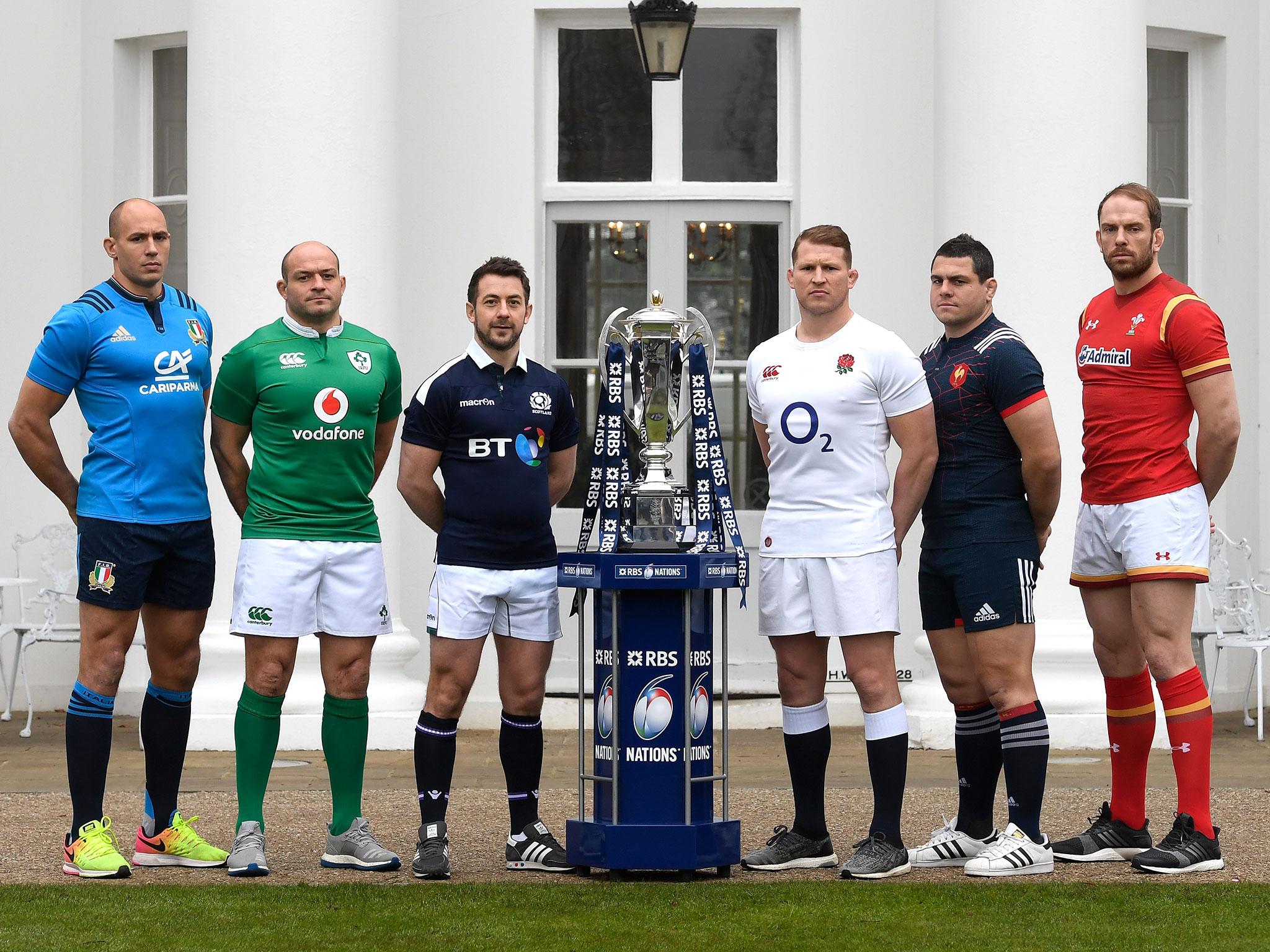Six Nations fever is hotter than ever, but the one guarantee is there aren't any as unpredictable bonus points shake it up
A re-jigged points system, stricter punishments and a British and Irish Lions tour on the horizon has added to the Six Nations buzz. Hugh Godwin brings you all the details

Your support helps us to tell the story
From reproductive rights to climate change to Big Tech, The Independent is on the ground when the story is developing. Whether it's investigating the financials of Elon Musk's pro-Trump PAC or producing our latest documentary, 'The A Word', which shines a light on the American women fighting for reproductive rights, we know how important it is to parse out the facts from the messaging.
At such a critical moment in US history, we need reporters on the ground. Your donation allows us to keep sending journalists to speak to both sides of the story.
The Independent is trusted by Americans across the entire political spectrum. And unlike many other quality news outlets, we choose not to lock Americans out of our reporting and analysis with paywalls. We believe quality journalism should be available to everyone, paid for by those who can afford it.
Your support makes all the difference.At a time when predicting the outcome of a two-horse race in the wider world is hazardous enough, how many firm predictions can we make about the Six Nations Championship? Ireland and England will finish nearer the top than the bottom? And Italy, vice versa? Those apparently nailed-on scenarios could be hogwash by the end of the opening weekend, so as we wait to see whether one or more of the favourites in the first three matches – England, Ireland and Wales – falls over in London, Edinburgh or Rome, let’s look at what has changed in the structure of the self-styled “Rugby’s Greatest Championship”.
The headline act is the use of bonus points for the first time in the competition (22 years after New Zealand’s provincial championship introduced them to top-level rugby union, and 24 years since the old “Five Nations” brought in points difference and a trophy to end the practice of shared titles). The system is very familiar to watchers of the Rugby World Cup, Aviva Premiership and several other major tournaments: instead of the previous set-up of two match points for a win, one for a draw and none for a loss, teams are now playing for four match points for a win, two for a draw and none for a loss, with the ability to secure an extra bonus point by scoring four tries or more and/or finishing a loss within seven points or fewer of the opposition. (So if a team loses 30-23 and scores four tries in doing so, they will earn two points – both of them bonuses.)
England’s head coach Eddie Jones has said bonus points have never made a difference to the way his teams play. But England’s full-back Mike Brown conceded earlier this week that players will need to be aware of the permutations and possibilities.
Say there’s five minutes left to play, your team has scored three tries and is holding a narrow lead but is under the pump on your own goal line. Do you play safe or launch an all-out attack? What if you know that a rival team has earned a bonus earlier in the day? Brown added that these tactical decisions were “above his pay grade” – meaning the captain and coaches would set the agenda. And, by the by, Brown’s pay grade has altered too, according to reports that an improved £150,000 package will be paid by the Rugby Football Union to any England player who appears throughout the Championship and helps to repeat last year’s Grand Slam.
Returning to the on-the-field bonuses, the obvious glitch that a team might achieve a Grand Slam yet not win the Six Nations title has been solved by a further three points going to a team that wins all five matches - to take them beyond the greatest-possible points haul (22) of any team that manages four wins and one defeat.
Bonus points are on a one-year trial, in each of the three Six Nations Championships – senior men’s and women’s, and men’s Under-20s - and we wait to see whether such a quick-hit tournament will be helped or harmed by the embellishment. Remember that two glaringly inequitable aspects have been left untouched: half the teams play three home matches to the other half’s two, and the staggered kick-off times on the final day allow the teams playing last to know where they stand better than their rivals.
Foul play and concussion are in the news, as World Rugby’s recently-increased sanctions for making contact with the head of an opponent have raised fears of match-changing yellow and red cards for accidental collisions. The 12 referees who will handle matches in the Six Nations insist the line between a penalty and a sin-bin or sending-off will be drawn sensibly on a judgement of how much intent and force were used, and how much a player knew the risk of the tackle he made. The overall mantra is “protect the head”, which can only be good.
Add in other talking points such as teams striving to improve their world ranking in order to gain a higher seeding in the 2019 Rugby World Cup to be made in Japan in May, and the effect of individual form or failure on the make-up of the summer’s British & Irish Lions tour squad, and the buzz around the Six Nations Championship is greater than ever.
Join our commenting forum
Join thought-provoking conversations, follow other Independent readers and see their replies
Comments